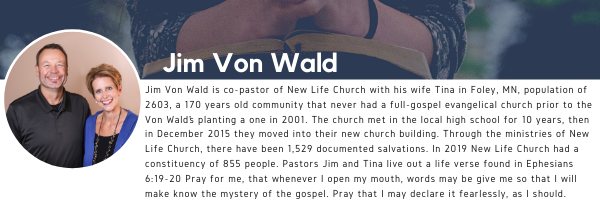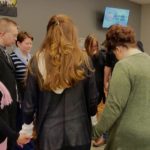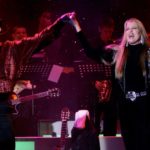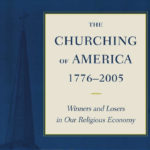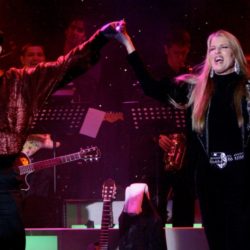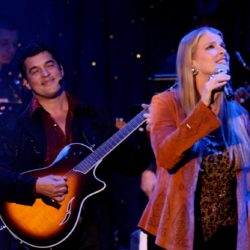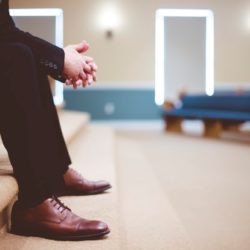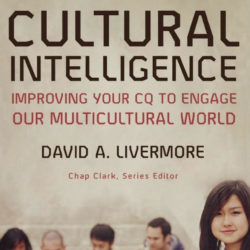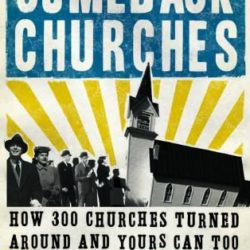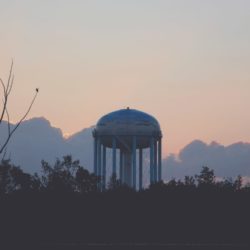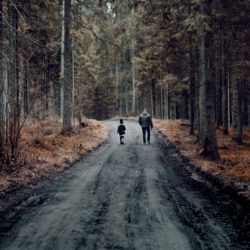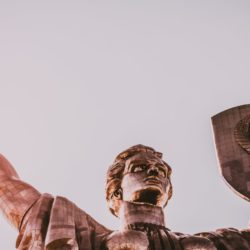By Jim Von Wald
I was recently taken by surprise at the grief which overwhelmed me on my sister Kim’s 60th heavenly birthday. Kim passed away from cancer in January of 2018 and didn’t see 60 here on this earth. Of all the people in my life who taught me what I call “life lessons”, those lessons that give life true meaning, Kim probably taught me the most. Kim was the oldest of five children in our family, but was also the “youngest.” She was born physically “normal” but developmental delays plateaued her at a cognitive age of 5 to 7 years. This meant her four younger brothers became her protectors, and brought to life the command in Psalms 82:3 to defend the weak.
As you might imagine, Kim would often do or say things that were embarrassing. She loved to meet new people and would go out of her way to do so. Her opening line to someone she was meeting for the first time was “Hello, my name is Kim, I’m retarded.” In the 60’s and 70’s retarded was the term given to people with Kim’s disability. Kim would often question God why He had made her retarded, or ask me, “will I ever be healed?” I can say beyond a shadow of a doubt, her healing is completed now in God’s presence. Something I learned as I matured was that her introductory statement was not meant to embarrass me or others, Kim didn’t have it in her thought process to do that, Kim wanted to put others at ease. She gave an open and vulnerable introduction revealing in an instant all her inner frailty and trust, “this is who I am, who are you?”
Serving as a pastor in a rural church, I have been able to recognize the many gifts Kim has granted me. One being the gift of compassion for those with disabilities. She has given to me the ability to move past my embarrassment or concern for what a guest might think when they see those with disabilities serving in front line ministry positions in the church. She taught me to think outside my box and to see the bigger picture of a world filled with people who God has created them to be.
I learned that despite her cognition, Kim could pray. She could often be found on her knees by her bed interceding in the Spirit (she was baptized in the Holy Spirit with the evidence of speaking in tongues) for the healing or salvation of those she loved. She portrayed a beautiful and innocent display of Christ in the way that she loved everyone she met and expected the same in return. I believe she had God’s ear. Maybe it was because of her persistence, but I am almost certain it was due to her child-like faith that God answered many, many of her prayers. Our observation of Kim’s faith and God’s miraculous provision has led us to allow and ask those with developmental delays to be a part of our prayer and altar ministry. As a result, we have experienced the supernatural and miraculous touch of God in people’s lives through physical and relational healings.
I learned from Kim that a church which loves and embraces those with cognitive brokenness shows its guests that they too will be loved and embraced. Who in the world today is not suffering some form of brokenness and needs the love of Jesus to shine through His church and embrace them? Those with physical and cognitive disabilities on our greeter team for this very reason. In a world and culture that often says first impressions are everything, I can think of no better first impression than to show everyone who walks through our doors that every person in this church is loved and accepted.
Kim pushed me to think outside of the box in a world where autism or food allergies or ADHD have become the norm. How do we address these in the rural church? How do we best serve our families and children? These questions have pushed us to create a team of parents who help with our autistic and behavior challenged children. It has challenged us to keep a supply of non-dairy or peanut free snacks available so that all can feel welcome. These areas can become overwhelming for the rural church that often lacks resources, but something as simple as serving a gluten free cracker option at Communion makes everyone feel included. As a result of this addition to our Communion time, two new families have begun attending our church. They had not been able to take communion at previous churches for years and as one of the family members said, “you offering this option means that everyone matters to this church.”
One of Kim’s persistent prayers was for new people to come to church and for the church to be filled. Growing up in a small rural church, in a town with aging demographics and a population trending downward, this seemed like a big prayer for God to answer. However, at Kim’s funeral the church was so full, the basement fellowship hall was even at capacity as people had no other option but to watch the service happening upstairs via Facebook live. In the history of our church there had never been more people in attendance. It seemed to be God’s way of saying, Kim’s life mattered to me and, thankfully, mattered to many others. My challenge for every person who hears Kim’s story is to look outside the lens of your current perspective, think about the many possibilities that exist for those with disabilities, and see what those possibilities could mean to others. Because, just as Kim taught all those who knew her, every person matters.
